Deaf Life9th November 2017
An interview with Deaf Business Woman and BSL Teacher Sarah Lawrence
Shared aspirations and with a programme of action in mind.
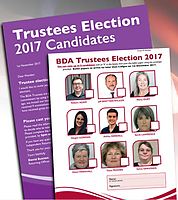 A long time supporter of the British Deaf Association (BDA) we asked Deaf businesswoman Sarah Lawrence to tell us a little about herself and what she hopes to achieve if her nomination to the Board of Trustees is successful. True to her daily mantra that 'Deaf Can', Sarah was typically frank and direct in her responses, showing us the passion she has for British Sign Language (BSL) and the Deaf community.
A long time supporter of the British Deaf Association (BDA) we asked Deaf businesswoman Sarah Lawrence to tell us a little about herself and what she hopes to achieve if her nomination to the Board of Trustees is successful. True to her daily mantra that 'Deaf Can', Sarah was typically frank and direct in her responses, showing us the passion she has for British Sign Language (BSL) and the Deaf community.
1) Tell us a bit about your background; Were you born Deaf? Do you have a Deaf family?
Whilst I consider myself to be culturally Deaf with BSL my first language, I was born hearing into a hearing family and became Deaf through illness when I was three and a half. My mother and father, both of whom have now passed away sadly, were fantastic, being wonderfully creative to support my visual learning and visual understanding of the world around me. My parents looked at schooling me in a Deaf School but on the advice of the Head of Deaf Education in the Council, I went to mainstream school, where BSL was denied me.
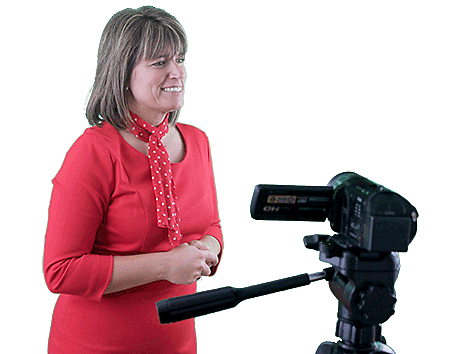 2) How did you get involved with the Deaf Community?
2) How did you get involved with the Deaf Community?
My strong Deaf identity came later, but how grateful I am that it did, making me comfortable in the Deaf community, which ultimately lead to me travelling extensively around the UK meeting other Deaf people through indoor games and other activities. The knowledge of the richness of the Deaf community, its care, compassion and understanding, has been a strong and guiding influence on me ever since.
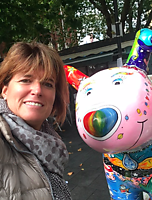 3) What do you think are the priorities that the BDA should focus on?
3) What do you think are the priorities that the BDA should focus on?
Ultimately, the future direction of travel for the BDA will be set by the senior officials and the Board of Trustees, but having spoken to a lot of Deaf people around the country in recent years, I have my own thoughts and I really hope to get the opportunity to achieve some positive outcomes in the coming years around improving education outcomes for all D/deaf children; seeing an increase in the use and standard of BSL in everyday life; and achieving greater parity on Deaf people accessing information. I would also like to see the BDA significantly increase its membership through better engagement, a real and meaningful interest in Deaf people's lives and the needs that falls out of that, and maybe return to running programmes that up-skill Deaf people in a range of professions.
4) BSL Standards – like the BSL Act in Scotland you mean?
The BSL (Scotland) Act 2015 is a brilliant starting point, and ultimately, yes, I hope one of the outcomes is far more BSL being available and the standard of BSL being higher than it is now. Deaf teachers like me, need far more resources for use in the classroom, equivalent to what English, Maths, Science and other language teachers get if you like. I see examples of the teaching of BSL being 'dumbed down', to suit hearing learners and less qualified teachers, and the availability of resources backing up the important rules of BSL would help raise standards and reduce the daily challenge from some students.
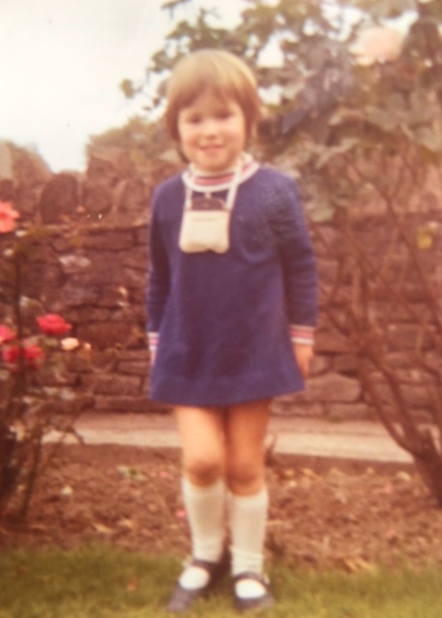 I find it insulting that people with Level 1 and 2 BSL think they can teach BSL properly or being used extensively to support Deaf children through education. Completely fluent BSL support would undoubtedly improve every Deaf child’s understanding in lessons and that would lead to improved educational outcomes.
I find it insulting that people with Level 1 and 2 BSL think they can teach BSL properly or being used extensively to support Deaf children through education. Completely fluent BSL support would undoubtedly improve every Deaf child’s understanding in lessons and that would lead to improved educational outcomes.
5) In your view, how can the BDA improve Deaf education?
Deaf Eduction has been my priority for years, as it has for the BDA. To achieve the massive change that I think is still needed, we need BSL to be available as a GCSE, closely followed by an A-Level. I know that for me, learning BSL improved my education, even though it was not used one bit in school. It helped me understand school concepts and it completely broadened my understanding and access to the world around me. I hope to see the BDA work in partnership with key organisations and knowledgable individuals who understand the workings of Government, to put forward such a persuasive argument that we do finally secure a groundswell in support and a complete change in the anti-Deaf culture that often exists in policy making now.
6) And you mentioned equal access to information – what do you mean by that?
In the last few weeks I have completed BSL translations of a number of health campaigns, some of which have been running for years. Documents, leaflets and TV adverts for those campaigns have used language and delivered their message in a way that many Deaf people could not access and yet the campaigns themselves were considered life saving. Finally, through BSL translations Deaf people will also access that information. There are many more examples, where important information is given to the general public, but Deaf people suffer information deprivation. Equality Law is too weak in this area and we need it to change. Someone’s life might depend on it.
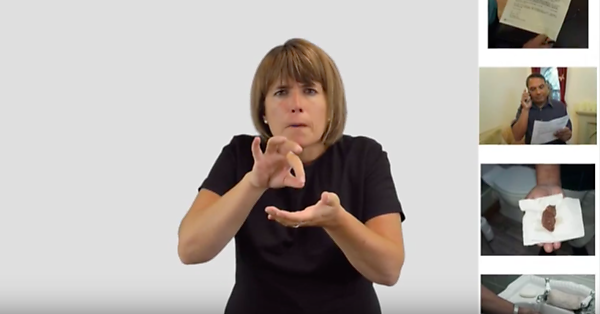
7) Why should people vote for you?
People who know me, and have said they are voting for me, tell me they have done so because they know they will see action and outcomes. Kind words and good intentions look great on paper, but from many of the comments made to me, people want to see results, they want the BDA to make a difference, a real difference, not just at a policy level but at the daily life level. They want to see action around the things that matter to them, and they want the BDA to run programmes that support them, that have a positive effect on their lives.
My background is in observing real life situations, getting people’s opinions about something and then doing what I can as a Mrs Nobody, to get solutions. That is why I started my own business over 20 years ago, and it is still going strong. That is why I started a bilingual magazine, which I used to share important information in articles that were written and signed, and is now read in over 170 countries. My ambition is to improve society’s attitude towards Deaf people, so that I am seen as Sarah Lawrence first, and as a Deaf woman second.
 8) Finally, looking to the future – what does a ‘successful BDA look like to you?
8) Finally, looking to the future – what does a ‘successful BDA look like to you?
Well, it has to improve its appeal to many more Deaf people in the UK and be relevant to their everyday lives. For me, it needs to be in touch with people and be useful, informative and even entertaining. And alongside that, it needs to be a powerful campaigning organisation that champions new standards and holds decision makers and governance to account. It needs burning ambition and it needs to show balls. In my experience, constant use of platitudes achieves little. Policy makers need to understand that some change is not desirable, it is bloody essential!
Article by SL First Team
posted in Community / Deaf Life
9th November 2017





